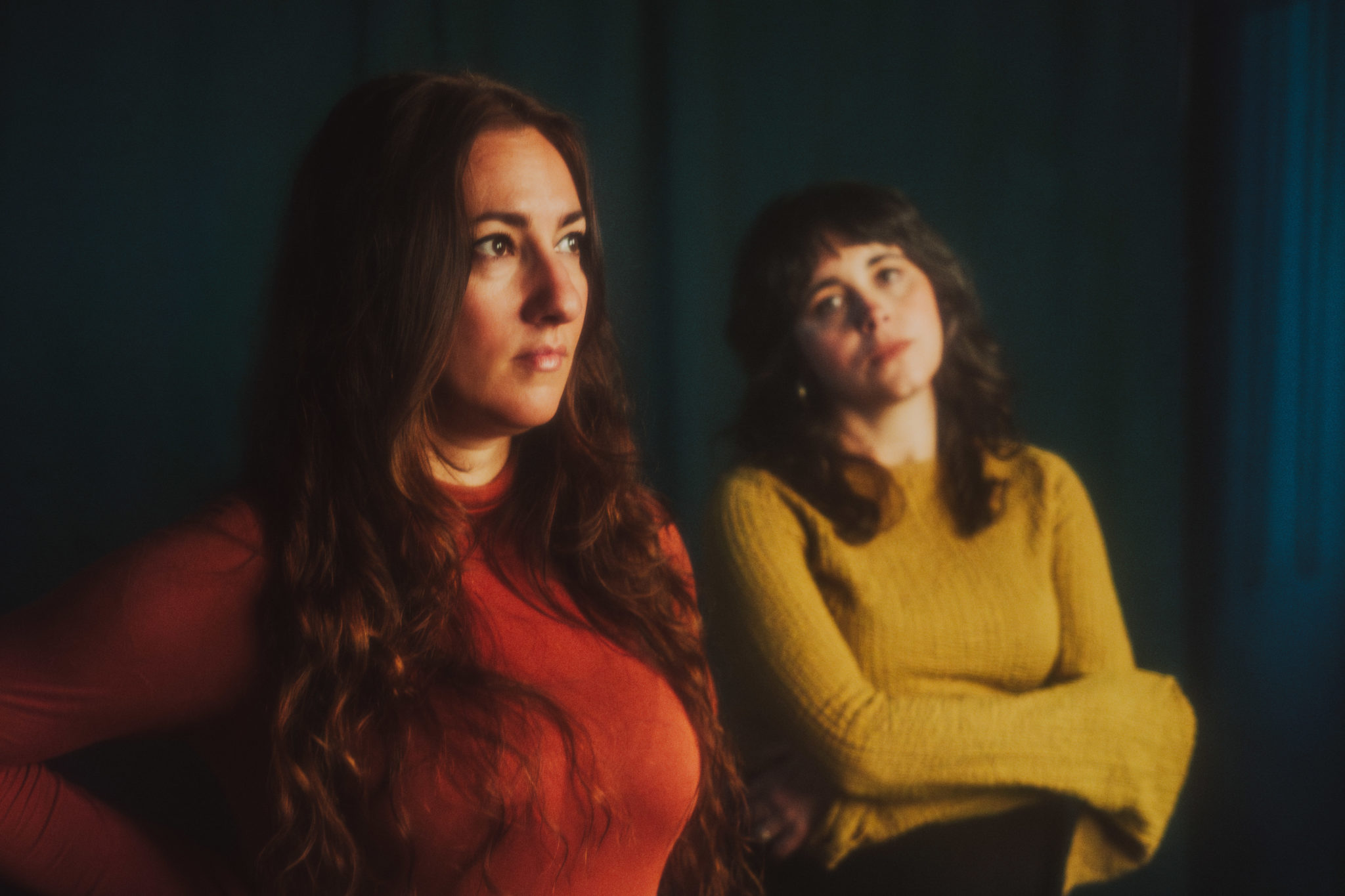- Music
- 21 May 25
VARO: "I couldn’t play, and I wanted to learn, but I had no money. So I went to The Cobblestone to learn, watch, and listen..."

Lucie Azconaga and Consuelo Nerea Breschi of VARO discuss their new collaborative album, The World That I Knew – a powerful celebration of Ireland’s folk music community, featuring members of Lankum, John Francis Flynn, and more.
A harp on your passport and a fluent grasp of the language have never been prerequisites for forging meaningful connections with traditional Irish music. That’s why, in a scene defined as much by its boundary-transcending spirit as its deep-rooted respect for tradition, it shouldn’t come as a major shock that the members of one of the Dublin folk community’s most vital forces, VARO, were neither born nor raised here – but found their way to these sounds on international paths, criss-crossed with jazz, classical and world music.
“When I arrived, I spent all my life in The Cobblestone,” one-half of the duo, Lucie Azconaga, says of first moving to Dublin from France, 14 years ago. “Literally – I’m not exaggerating. I couldn’t play, and I wanted to learn, but I had no money. So I went to The Cobblestone to learn, watch, and listen.”
VARO was formed after Lucie crossed paths with fellow singer/fiddle-player Consuelo Nerea Breschi, who hails from Italy, in 2015. The pair – taking their name from a river that once represented the border between their two countries – soon carved out their own unique presence on Dublin’s live circuit and session scene, and released their acclaimed self-titled debut album in early 2020.
Their latest project, The World That I Knew, was largely recorded during the pandemic years. The duo responded to the prevailing sense of social isolation by celebrating musical connections, through collaborations with the likes of Lankum’s Ian Lynch and Cormac MacDiarmada, Landless’s Ruth Clinton, John Francis Flynn, Junior Brother, Lemoncello, Anna Mieke, Niamh Bury and more.
“I know a lot of people had to keep working, and people had very different experiences – but everything stopped completely for me,” Lucie says, reflecting on lockdown. “It was this lack of interaction. It seems stupid to say today, but not playing with anybody, and living on my own, and not being able to see my family for two years… I needed connection – and I needed it to be through music.”
More specifically, VARO wanted to explore those connections through songs.
“There’s no instrumentals or tunes in there, because we wanted stories,” Lucie resumes. “This was very much about the connection with the people who surrounded us in our music scene, but it was also about the connection with these guys who wrote and sang these songs, who are dead now. They left us things that we could connect to. So it was all about people, basically.”
“And harmonies,” Consuelo adds. “It was about singing together, which was very therapeutic.”

Consuelo notes that, in the early 2010s, there seemed to be “less space for songs, even in sessions,” in Dublin’s traditional music scene – but she’s been encouraged to see “a bit of a revival” of songs and ballads among younger artists over the past decade or so.
“In my experience, it was pretty much when I started to meet with the guys from Lankum,” Lucie says of that revival. “There was a session in Devitt’s, and they’d be there, singing with other people. And every time that I’d go, at some stage, they would sing a song in harmony – which I had never heard before.
“I'd hear singing acapella, solo, but this – it being okay to sing an Irish song in harmony in a very traditional place – was not something that I had witnessed before. So for me, it started with this, and then it seemed to spread.”
Although The World That I Knew was delayed a few years by the busy pace of post-lockdown life for VARO and their many collaborators – including producer John ‘Spud’ Murphy, renowned for his work with the likes of Lankum and ØXN – it now serves as not only an album heaving with energy and ideas, but an essential time capsule of a special moment in Irish music.
“It is a small enough community,” Lucie reflects. “If you don’t know everybody, you know of people. We used to do sessions in The Cobblestone and McNeill’s every week. Each person on the album, we met them there. So it was like this mad fantasy, to recreate what you’d feel when you’d go to a session – even if you were stuck at home. We were like, ‘Okay! Let’s pretend we’re in the pub…’”
Despite all being written between three decades and three centuries ago, the songs on the collaborative album were selected for their ability to speak to present day concerns – from the often overlooked contributions of ‘essential workers’ and working class people (‘Work Life Out To Keep Life In’), to the importance of uniting against racism (‘Sweet Liberty’).
“Unfortunately, some things don’t change overnight, “ Consuelo remarks. “In lockdown, without the distractions of everyday life, you could see these problems even more.”
Less than two weeks after ‘Sweet Liberty’, a collaboration with Ian Lynch of Lankum, was released as a single, an anti-immigration march, attended by around 5,000 people, took place in Dublin.
 VARO and Ian Lynch
VARO and Ian Lynch“It was very bitter to know that those lyrics are still badly needed,” Consuelo nods. “The rise of the far-right in Ireland did a big jump over a couple of years. When we started this, I kept saying, ‘Oh, we’re so lucky here, compared to Italy and France.’ But not anymore.”
The song was originally selected for the project, VARO explain, in the wake of George Floyd’s murder by a police officer in the U.S., and the global Black Lives Matter protests that followed.
“The whole world was looking at that from their houses, and I was thinking, in Ireland, ‘This will never happen here,’” Lucie recalls. “But it was massive, and it was in the consciousness of everyone, so we wanted to talk about what was happening at the time.
“And unfortunately, yeah – the song comes out, and two weeks later, some people think, to be Irish, it’s not okay to be a certain way...”
The World That I Knew is, at its heart, a celebration of a relatively small, though now world-renowned folk scene – but VARO have also witnessed how the housing and cost-of-living crises have taken their toll on that community in more recent years.
“A lot have had to leave because of this reason, which is sad,” Consuelo notes. “And some sessions have died. But new sessions are born also. And some people are away all the time because they’re very busy – but they still come back, and sing a song...”
• The World That I Knew is out now.
RELATED

- Lifestyle & Sports
- 25 Feb 26
St Patrick's Athletic release collaborative jersey with The Wolfe Tones

- Uncategorized
- 25 Feb 26
Oasis, Shakira, Jeff Buckley and more nominated for Rock & Roll Hall of Fame

- Music
- 25 Feb 26
Jacqui McShee’s Pentangle to play Dublin this summer

- Film And TV
- 25 Feb 26






